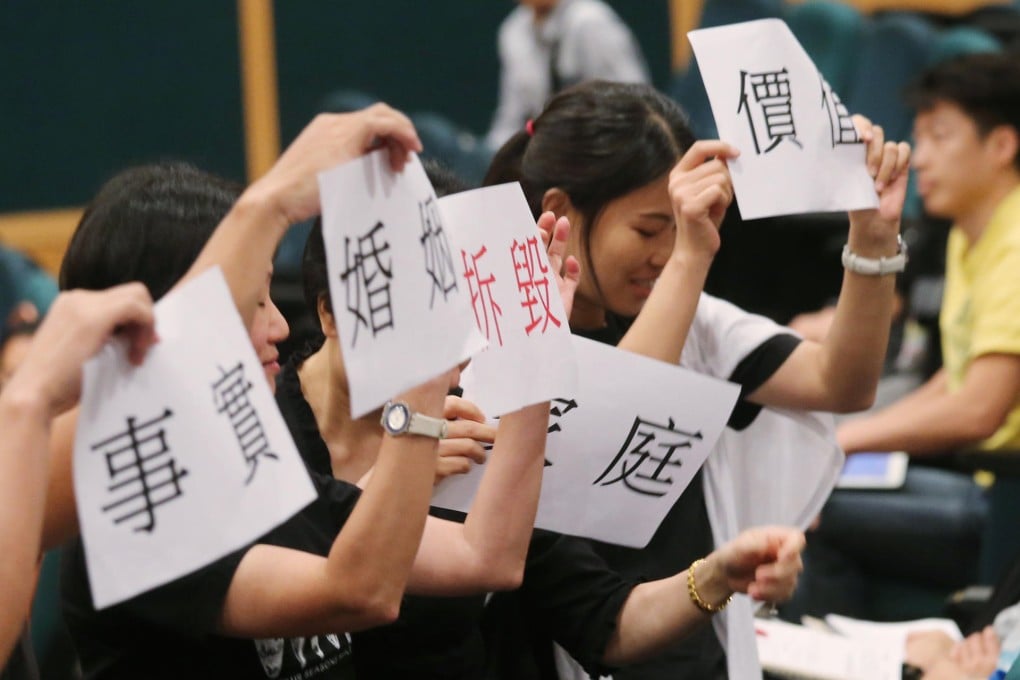EOC move to redefine marital status is too drastic a change

The Equal Opportunities Commission (EOC) is conducting a public consultation on the Discrimination Law Review.
The consultation paper contains several areas that have great relevance to education regarding the freedom and rights of school sponsoring bodies, school governance, curriculum changes as well as moral education for the young.
It proposes to change the present definition of marital status, or marriage, from that of the traditional formally registered union between a man and a woman to one that includes mere de facto relationships, whether heterosexual or same-sex in nature; de facto relationships can also simply mean cohabitation of members of the opposite sex or the same sex.
Furthermore, any protection for people in a marital relationship from discrimination could be extended to those in de facto relationships, or even former de facto relationships.
Such redefinition of marital status and public endorsement of cohabitation by law promotes casual unions. It turns traditional Chinese values and social norms upside down, undermining the whole foundation of our family system and causing it to weaken further, if not crumble immediately. How would our parents and society view it?
Many local schools are established and run by bodies that have strong religious backgrounds, with unequivocal opposing stands on such matters, or which adhere strongly to traditional values on marriage and family.